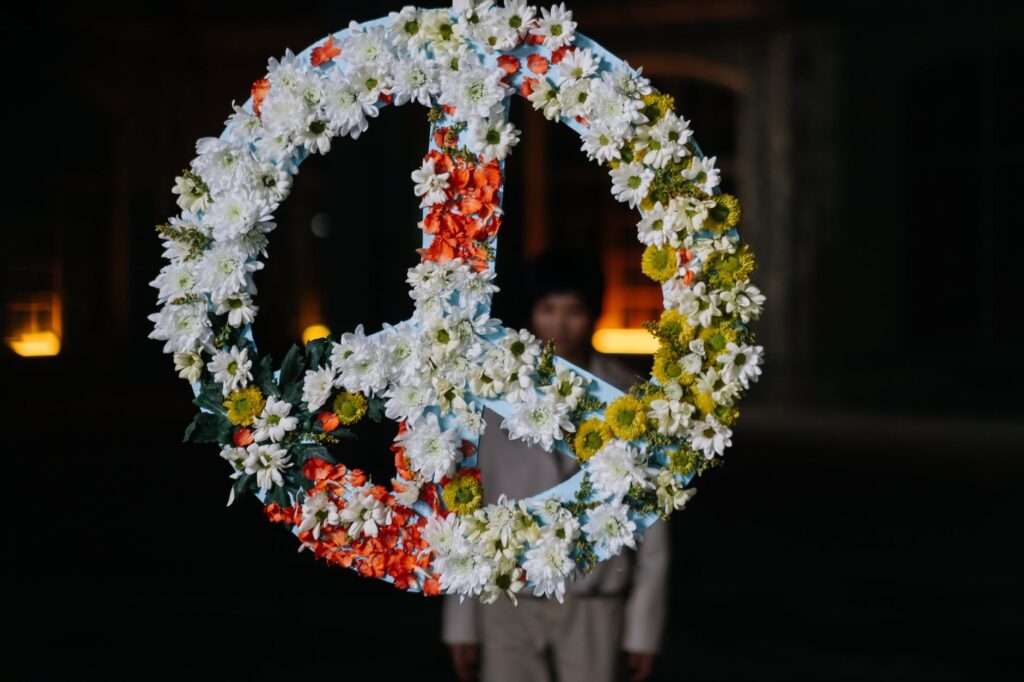
By Brandan P. Buck, Free the People, 5/6/22
The range of ideological opposition to U.S. foreign policy is the most diverse since before World War II. Liberal and progressive critics, long the primary bastion of dissent, are once again making their presence known after a lapse during the Obama administration. And, on the right, fissures over U.S. foreign policy, which erupted in 2016, are here to stay. These disparate dissidents are attempting to parlay and turn their shared opposition into action.
Many within the commentariat are confused by this perplexing alliance. Some have slandered this relationship as a tenuous “Red-Brown coalition.” Such characterization is an unfortunate (if not an intentional) mischaracterization of this budding partnership. Left-wing opponents to the foreign policy status quo are not communists. Nor are the ranks of the right overpopulated with Nazis. Instead, the two wings of dissent are the inheritors of distinct but often overlapping strains of foreign policy opposition. Both traditions are firmly rooted in the American experience; neither are alien imports of a totalitarian ideology.
The reemergence of both strains signals a return to an earlier norm where opposition to U.S. foreign policy was not a definitive litmus test for a party or ideological affiliation. Understanding this history and how they came to be consumed by partisan politics should reassure those who desire a change in how the U.S. government conducts itself abroad.
The early interwar period constituted the high point of American non-interventionism in the 21st century. The horrors of the Great War and transpartisan suspicion of centralized power created a broad range of antiwar sentiments. In both Congress and the broader political culture, Americans across the political spectrum opposed American involvement in foreign wars, particularly at the prospect of fighting in Europe. Famous works like War is a Racket by retired major general Smedley Butler challenged the naive assumptions of American foreign policy and charged that economic and government interests had become intertwined. Butler’s treatise was preceded by another expose of the corporatist roots of modern war, Merchants of Death. Authored by H.C. Englebrecht and Frank Hanighen, Merchants of Death served as a forerunner of the “military-industrial complex” concept. They helped to spawn a congressional committee to investigate the origins of U.S. entry into the Great War. The differing ideologies of its authors served as proof of broad antiwar sentiment at the time. Englebrecht was a frequent columnist for The World Tomorrow, a leading magazine for Christian socialists; Hanighen would join the America First Committee (AFC) and co-found Human Events, a leading conservative magazine founded to advocate for non-interventionism.
Despite its reputation as an exclusively conservative organization, the AFC had former progressives among its members, like NAACP co-founder and former editor of the Nation magazine Oswald Garrison Villard and dissident liberals such as journalist John T. Flynn. The AFC also found much of its inspiration from progressive historian Charles Beard. While not officially a member of the AFC, Beard’s views paralleled their efforts. The AFC listed his book, A Foreign Policy for America, Giddy Minds and Foreign Quarrels on their book list, along with other antiwar books like Merchants of Death. Conversely, The Progressive, a left-wing antiwar magazine, ran articles from conservative non-interventionists like Frank Hanighen.
In this fluid ideological environment, boilerplate left-wing critiques of capitalism merged with right-wing criticisms of state power to form a potent opposition to future American involvement in overseas wars.
Despite this early consensus, the Overton Window on American involvement in overseas wars narrowed as Hitler’s armies marched across Europe. Nazi Germany’s conquest of France and the Low Countries and assault on the British Isles turned most liberals towards intervention. Similarly, the German invasion of the Soviet Union caused American communists, who had hitherto been counted among the ranks of the non-interventionists, to flip on a dime and join the cause of the Allies. In this collapsed ideological environment, only predominantly right-wing groups like the America First Committee and progressive holdouts like Charles Beard and The Progressive remained in opposition to U.S. entry into the war during the waning months of 1941. The Japanese attack on Pearl Harbor caused official American entry into the war and narrowed the contours of American foreign policy debate for a generation…
Read full article here.
When Tulsi Gabbard and Laura Ingraham or Tulsi and Tucker Carlson have a calm, quiet, polite conversation about how badly the Biden Regime has fouled up its foreign policy, (and the US economy), by getting so deeply involved in Ukraine, does that fall under this heading?
I would say so.
Left-right fusion is what the Dems and Republicans most fear. Maybe this insane foreign policy will bring it about!